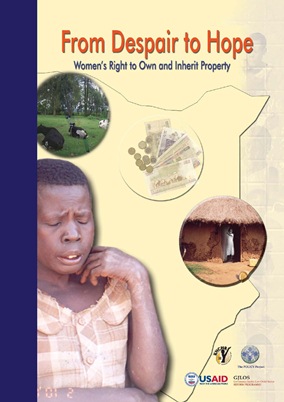From Despair to Hope: Women's Right to Own and Inherit Property
The right to own and inherit property is a crosscutting right that traverses the realm of civil, political, economic, social and cultural rights. This right is central to the true empowerment of everyone in society (men, women, boys and girls) and is a key developmental right. It is the common right to all societies and cultures. It is central to securing the dignity of all members of the society.



